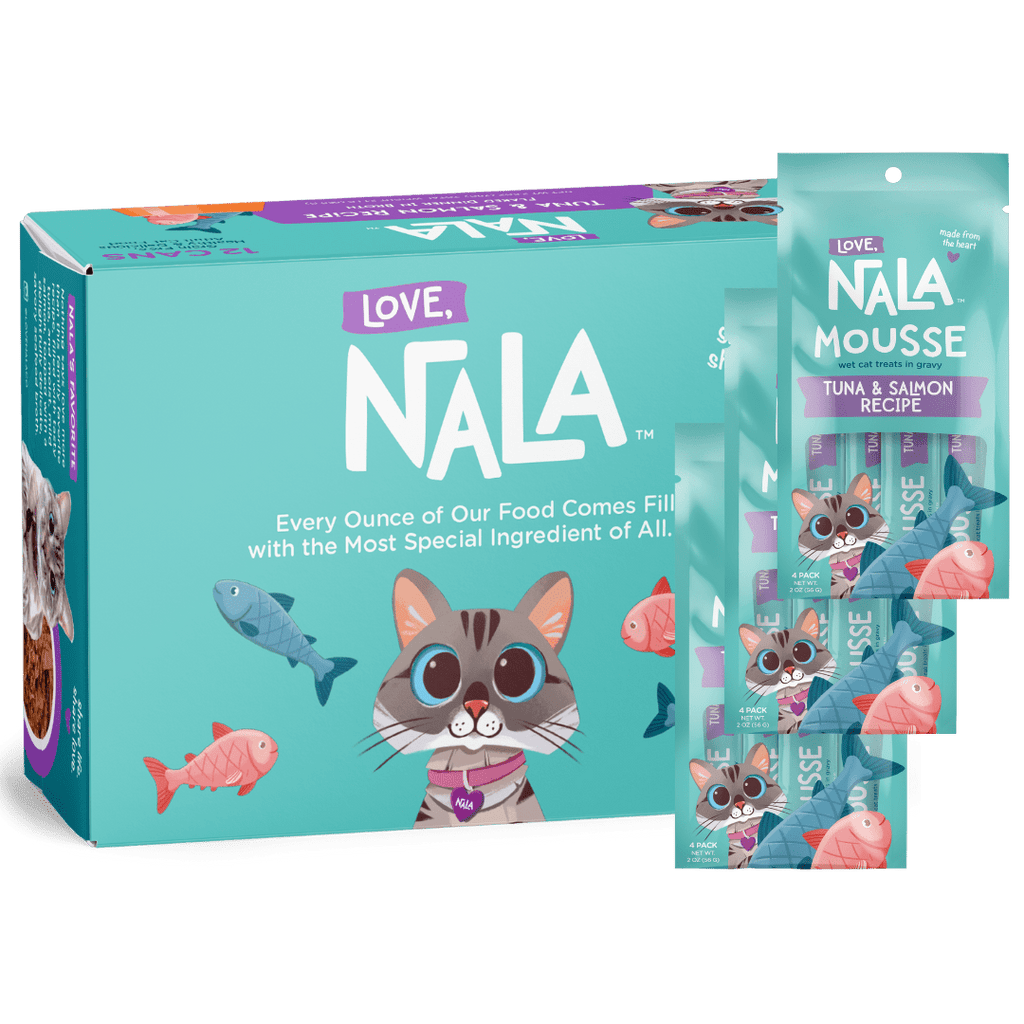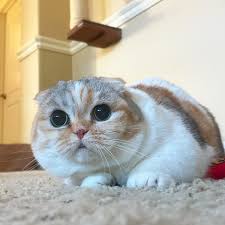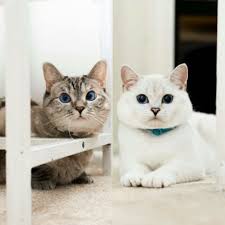As pet owners, we all want the best for our furry companions, including their nutrition. Good nutrition for cats is essential to maintaining their overall health and well-being. However, even with the best cat food, some cats may need additional nutritional support. This is where nutritional supplements for cats come in. In this article, we will explore the benefits, types, and risks of nutritional supplements for cats.

Understanding Nutritional Supplements for Cats
The primary purpose of nutritional supplements is to provide additional nutritional support to help address a cat's specific health concerns. While cat food is formulated to meet the nutritional requirements of cats, it may not always provide the right balance of nutrients, especially for cats with underlying health issues.
When to Use Nutritional Supplements for Cats
Chronic health conditions, such as kidney disease, diabetes, arthritis, and heart disease, are prevalent among the feline population, especially as they age. These conditions can lead to decreased nutrient absorption, increased nutrient requirements, or specific dietary needs that might not be fully met by even the highest quality commercial cat foods. For instance, cats with kidney disease may benefit from supplements that help manage blood phosphate levels or that support hydration. Similarly, cats suffering from diabetes might need supplements that aid in glucose metabolism or that support insulin function.
It’s also worth noting that certain life stages or conditions may increase a cat’s nutritional requirements. Pregnant or nursing cats, for example, have higher energy needs and can benefit from supplements that provide additional calories and essential nutrients to support both the mother and her offspring. However, it is crucial to approach the use of supplements with caution. Over-supplementation can lead to toxicity and adverse health effects. Therefore, it's important to consult with a veterinarian before starting any supplement regimen. A vet can recommend specific supplements tailored to a cat’s individual health needs and monitor for any potential interactions with existing medications or conditions.
Common Nutritional Supplements for Cats
When considering the health and wellness of our feline friends, dietary supplements can play a pivotal role in ensuring they lead happy, healthy lives. The market is brimming with various supplements, each designed to target specific health needs and deficiencies. Below, we delve deeper into some of the most popular supplements available for cats, explaining their benefits and uses.
- Vitamins and Minerals: These foundational supplements are crucial for a cat's health, acting as the bedrock for proper growth, development, and maintenance of vital functions. They support various biological processes, from energy metabolism and immune defense to bone health and neurological functions. Cats, especially those on homemade diets or with health conditions, may benefit from these supplements to prevent nutritional deficiencies. Vitamin and mineral supplements come in various formats, including powders, chews, and liquids, allowing for easy integration into a cat's diet. This versatility ensures that every cat, regardless of its dietary preferences or restrictions, can receive the necessary nutrients for optimal health.
- Probiotics and Digestive Enzymes: A healthy gut is essential for overall wellness, and these supplements aim to enhance digestive health in cats. Probiotics introduce beneficial bacteria to the gut, restoring the balance of the intestinal flora and potentially aiding in the recovery from gastrointestinal disturbances. Digestive enzymes complement this by facilitating the breakdown of food, ensuring more efficient nutrient absorption. This combination is particularly advantageous for cats experiencing digestive issues, those undergoing antibiotic treatment, or cats with chronic gastrointestinal disorders. By supporting a balanced gut environment, these supplements can contribute to improved nutrient uptake and a healthier digestive system.
- Omega-3 Fatty Acids: These essential fatty acids are pivotal in maintaining a cat's skin and coat health, reducing inflammatory responses, and supporting cognitive functions. Derived primarily from fish oil, omega-3 supplements can significantly enhance a cat's quality of life by addressing skin dryness, promoting a shiny coat, and potentially reducing the incidence of allergic reactions. Furthermore, omega-3s are recognized for their role in cardiovascular health and in mitigating inflammatory diseases, making them an excellent addition to the dietary regimen of cats at any stage of life, particularly those needing support for skin, joint, or cognitive health.
- Joint Supplements: As cats age, their mobility can decline, leading to a reduced quality of life. Joint supplements, rich in glucosamine and chondroitin, target this issue directly by nurturing the cartilage and promoting joint health, thereby aiding in the maintenance of mobility and comfort. These supplements can be particularly beneficial for senior cats, those with a history of joint issues, or breeds prone to joint problems. By reducing inflammation and supporting cartilage health, joint supplements can help keep cats active and comfortable well into their senior years.
- Herbal and Nutraceutical Supplements: Utilizing the power of nature, these supplements offer a holistic approach to health, drawing on the benefits of herbs and natural compounds to support overall wellness. From supporting immune function to enhancing liver health and reducing anxiety, herbal and nutraceutical supplements can address a wide range of health concerns. They are particularly useful for caregivers seeking natural alternatives or complementary therapies to support their cat's health alongside conventional treatments. With a focus on natural ingredients, these supplements can offer gentle yet effective support for various health needs.
The diverse range of supplements available on the market today means that there's likely a product out there to support the health needs of almost any cat. Whether aiming to fill nutritional gaps, improve gut health, support joint mobility, or leverage the benefits of natural herbs, there's a supplement suited to every cat's unique needs.

Choosing the Right Nutritional Supplements for Cats
Choosing the right nutritional supplement for your cat can be a challenging task, as there are many different types of supplements available. However, there are several factors to consider when selecting a supplement for your cat.
Age And Health
Firstly, it is vital to consider your cat's age and health status. Cats with chronic health conditions or those taking medication may have specific nutritional requirements that need to be met. Therefore, it is crucial to consult with a veterinarian to ensure that the supplements you choose are safe and appropriate for your cat's needs.
Supplement Form
Ensuring your cat receives the necessary supplements for optimal health can sometimes feel like navigating a maze, especially with picky eaters. Each cat is unique, with its own set of preferences and aversions. Traditional supplement forms may not always be well-received, prompting the need for creative solutions. To address this, consider the following varied supplement forms designed to cater to different feline tastes:
- Liquids: These supplements are versatile and can be easily mixed into your cat's food or given directly. Their fluid nature allows them to be discreetly incorporated into meals, making them an excellent option for cats who may not even notice their presence. Liquid supplements are particularly beneficial because they ensure precise dosing and can be absorbed quickly by the body, providing immediate benefits.
- Powders: Powdered supplements offer a convenient way to fortify your cat's diet without altering the texture of their food significantly. They can be sprinkled over or mixed into wet food, effectively camouflaging with the meal. This form is less likely to be detected by cats, making it a smart choice for those with a keen sense of taste or who are wary of new foods.
- Flavored Treats: Designed with palatability in mind, these treats are a hit with many cats. They combine the health benefits of supplements with the taste appeal of a regular treat, making supplement administration a delightful experience for your cat. These treats often come in various flavors, catering to the preferences of different felines and turning supplement time into a much-anticipated event.
- Gels: Gel supplements are soft and easy to consume, which can be particularly appealing for cats that prefer smoother textures. They can be applied to a cat's paw for them to lick off or mixed into their food, providing a stress-free method to deliver essential nutrients. Gels are often flavored to enhance appeal, ensuring that your cat enjoys their supplements as part of their daily routine.
Finding the right supplement form is a journey of trial and error but is crucial for your cat's health and well-being. It's about understanding and accommodating your cat's preferences to ensure they receive the nutrients they need in a form that they accept. This patient and considerate approach not only supports your cat's physical health but also strengthens the bond between you and your pet by reducing stress and resistance during feeding times.
Formulation
When considering nutritional supplements for your feline friend, it's imperative to select products that are specifically formulated for cats. This is because cats have unique nutritional requirements and sensitivities, different from humans or other pets such as dogs. For example, some vitamins and minerals that are beneficial or harmless to humans and dogs can be toxic to cats if ingested in inappropriate amounts.
Furthermore, the concentration of active ingredients in supplements not designed for cats may not be appropriate, either being too high or too low to meet their nutritional needs. For instance, taurine, an essential amino acid for cats, is not required by humans and might be absent or present in negligible amounts in supplements intended for human use. Without adequate taurine, cats can develop heart and eye problems, illustrating the critical importance of choosing supplements that match their unique dietary requirements.

Best Food For Cats For Optimal Nutrition
While nutritional supplements can be beneficial for cats, it is essential to ensure that your cat's regular diet provides all the essential nutrients they need. Choosing the right cat food is crucial to maintaining your cat's optimal nutrition.
Look for a brand that is formulated to meet the nutritional needs of cats. The food should contain high-quality protein as the primary ingredient, along with a balance of carbohydrates, fats, vitamins, and minerals. Avoid cat food that contains fillers, artificial preservatives, and flavors. Choosing cat food devoid of fillers, artificial preservatives, and flavors is crucial for your cat's health. Fillers often contribute empty calories without nutritional value, leading to obesity and nutritional deficiencies. Artificial preservatives can pose long-term health risks, including liver and kidney damage, while artificial flavors may encourage overeating by making less nutritious food more appealing.
Supplements for cat nutrition can be an effective way to provide additional nutritional support for cats with specific health concerns. However, it is important to choose the right supplement and consult with a veterinarian to ensure that they are safe and appropriate for your cat's needs. While supplements can be beneficial, they should not be used as a replacement for a balanced and complete diet. The right cat food, formulated to meet the nutritional needs of cats, should be the foundation of your cat's nutrition. By providing your cat with a complete and balanced diet and the right supplements, you can help maintain their overall health and well-being.




















